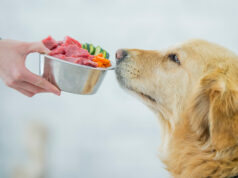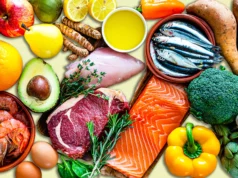Alcohol is a widely taken beverage that is dangerous to the body especially when taken in excess; it leads to many types of dangerous health complications, some of them are hepatitis, cancer, malnutrition, brain diseases, fertility problems, anemia and sometimes death.
Some people get so addicted to alcohol that it is hard for them to stay without it; they struggle every day to resist the cravings and urge to drink and sometimes go back to drinking because they feel helpless.
Health experts recommend recognizing the triggers; avoiding high risk situations, healthy eating, regular exercise, engaging in fun activities and joining a support network.
Recognize the triggers: Internal and external triggers can increase the urge to drink; when you know what triggers you to drink and you avoid them, you will combat and overcome the urge. External triggers that can cause this includes certain people you hang out with, places, things, occasions or times of the day associated with drinking.
These situations are high risk and are more obvious, predictable and avoidable than internal triggers. Internal triggers can occur when the urge to drink arises out of thin air; it can be caused by a fleeting thought, a positive emotion such as excitement, a negative emotion such as frustration or a physical sensation like headache, tension or anxiety.
Know that you are not powerless: Do not think, talk or act as if you are powerless over your addiction; alcohol is powerless over you and not vice versa. No drug can enter your body without you approving of it. You have power over your will and you can control what goes into your body.
Avoid high risk situation: Don’t buy or keep alcohol at home; don’t be in an occasion or gathering where alcohol will be served, tell your family members you need support. Avoid stopping by bars and do not feel guilty for rejecting alcohol or an invitation to an alcoholic party; remind yourself that it is for your good that you are doing it, don’t harm yourself to please anyone. Avoid hanging out with friends that you drink together and pick up hobbies, activities and carriers that don’t involve drinking.
Don’t be discouraged: Don’t let one mistake ruin your resolve; this is not an easy process and that is why efforts and determination are needed to succeed. No matter how many times you fail, keep trying; and look for new ways to go about this.
Join support network: Surround yourself with people who don’t drink and who will help you overcome this challenge; they will influence you positively and help you build your self-esteem and confidence. This step is necessary especially during the months of early recovery.
Constantly remember the negative impact of alcohol on your health: You can remember the heartache that alcohol abuse has caused in your life; this will help strengthen your resolve not to go back into drinking. You can also write down three great reasons why you should quit drinking; place it on a wall or in a place that you look at regularly.
Eat healthy foods and take a lot of water regularly: Proper nutrition and hydration help the body to heal and detoxify itself; they help to improve and restore the physical and mental health of the individual and even improve the chance of recovery.
This prevents nutritional deficiencies which can lead to a host of health problems which can trigger a relapse in turn; these foods strengthen the immune system, improve digestive functions and reduce cravings. It normalizes blood sugar and gives the general feeling of well-being.
Cut sweets and sugary foods from your diet: Sugar addiction can lead to alcohol addiction; if you are having cravings, your body might just be needing sugar. When you cut down sugar and sweet foods from your diet; it will dramatically reduce your cravings for alcohol.
Regular exercise: Regular exercise and physical activities can replace your drinking time and also stimulate some of the circuits and neurotransmitters in the brain as alcohol. Walking is a great way to begin, walk slowly for at least one hour every day, to make it more effective walk in sunrise and sunsets.
Drink pure water: Take at least 8 glasses of pure water every day; you should take more during hot weather, it leads to a clear mind and detoxifies the body of toxins. It also has many other tremendous health benefits.
Pick up healthy activities and hobbies: This will replace the time spent on drinking; rediscover hobbies and develop new hobbies and you will recover faster.
Kudzu: Kudzu is a wild vine whose tubers contains a chemical called daidzin, its starchy root tubers have been used to treat alcohol withdrawal symptoms for at least 1,300 years and it is used in modern times to suppress cravings for alcohol and diminish the effects of the withdrawal symptoms; it is effective in treating headaches; hangovers and dependency on alcohol.
Apples: This is an age old remedy that cures addiction; apples can also remove toxins formed by alcohol and it reduces the urge to consume hard alcohol.
Goldenseal: This herb fights the craving of sugar in alcoholics; it is also effective in killing candida, the bacteria that floods the intestine of alcoholics and trigger the cravings for sugar. The bitter taste of this herb along with its powerful antiviral and anti-fungal properties fights against alcohol cravings.
Raw almonds: These are useful in reducing the addiction to alcohol.
Milk thistle: This herb has long been used for the detoxification of the liver; it strengthens the liver and removes alcohol form the blood. This herb is a powerful liver detoxifier and it is used to treat liver disease caused by alcohol and it improves the functions of the liver and treats hangovers.
Evening primrose: This herb prevents addiction; the oil extracted from the seeds can greatly reduce the cravings for alcohol.
Go on a juice diet: This wonderful home remedy has worked for lots of people and has helped them quit alcohol. Take fresh homemade fruit juices for 10 days and the craving for alcohol will fade gradually; by the 11th day, a regular drinker can quit alcohol while a chronic drinker will need more days. Orange juice, pineapple juice or apple juice are good for this.
Ginseng: This herb can effectively and easily break down alcohol in the body and aid their quick elimination; it also reduces the rate of alcohol absorption in the stomach.
Take lots of grape and grape juice: Grapes are effective in getting rid of alcohol cravings; it is one of the most popular home remedies for quitting alcohol. You can also choose to go on a grape diet; in this diet, only grapes are consumed for 25 days, you are not to eat anything else, only grapes, grape juice and grape products like wine. It can be extended to a full month to quit alcohol completely.
Dandelion: This is another popular remedy for alcoholism; it reduces the ill effects of alcoholism and rejuvenates the tissues of the liver.
Dates: This is one of the oldest and most popular home remedies for quitting alcohol; soak some dates in water and rub them in the water, drink this solution three times daily to help you quit alcohol completely. Drink this solution thrice daily for a month; it works wonders and it has helped many people quit alcohol. You can also eat dried dates regularly in addition to the solution.
Skull cap: This herb is commonly used to manage the withdrawal symptoms of alcoholism.
Bitter gourd: This is potent in helping one quit alcohol and it also cure kidney damages caused by alcohol. Take the juice of bitter gourd early in the morning daily to quit alcohol. You can mix the juice with buttermilk to improve the taste because it is very bitter.
Licorice roots: This is a powerful antioxidant and body stimulator; it fights alcoholic addiction and improves the overall functioning of the liver and respiratory systems. It also treats kidney ailments caused by alcohol.
Carrot juice: This is an ultimate choice if someone wants to quit taking alcohol; this juice is a powerful detoxifier, it is loaded with antinutrients that repairs damages and curbs the urges of drinking alcohol. It is an effective treatment for alcoholism and it improves digestion which is impaired by alcohol. Take a full glass of this juice daily.
Don’t skip meals: Skipping meals is wrong when trying to get off alcohol; it opens the door to alcohol abuse, eat more than 3 healthy meals a day, it will also provide your body with all the necessary nutrients required to heal itself and overcome addiction. It will keep your stomach full and there will be a less desire to drink.
Withdrawal symptoms
For heavy drinkers; the body is physically dependent on alcohol, stopping the intake of alcohol will lead to a condition known as “withdrawal symptoms”; know that this is completely normal and with time it will stop and you will have your normal life.
Alcohol withdrawal symptoms usually starts within hours when one stops drinking, it is at its peak in a day or two and it usually improves within five days. These symptoms are unpleasant but with time these symptoms fade away.
Withdrawal symptoms can be life threatening in heavy drinkers; stopping drinking in heavy drinkers can lead to a severe form of alcohol withdrawal called “Delirium tremens”; this is a rare medical condition that is characterized by changes in the way the brain regulates circulation and breathing. When you experience this; please go to a hospital right away.
A long-term heavy drinker will need medical support to get off alcohol; the individual will need medically supervised detoxification which can be done in a hospital, alcohol treatment facility or on an outpatient basis.
Medications will be prescribed to relieve withdrawal symptoms and prevent medical complications. The symptoms of alcohol withdrawal can range from mild to severe and they include:
- Shaking
- Sweating
- Headache
- Nausea or vomiting
- Elevated heart rate and blood pressure
- Insomnia and trouble sleeping
- Difficulty concentrating and other mental problems
- Stomach cramps and diarrhea
- Anxiety, depression and restlessness
Signs and symptoms of severe alcohol withdrawal syndrome also known as delirium tremens are:
- Hallucinations
- Seizures and convulsions
- Extreme agitations
- Fever
- Severe vomiting
- Confusion and disorientation











